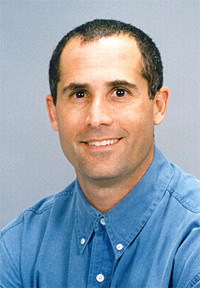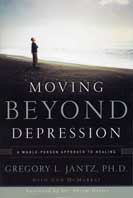
~Contents~
Articles: I. Midlife Eating Disorders and II. Surviving the Holidays, Treatment Center Information, Research, Events and Announcements.
Timberline Knolls Residential Treatment Center
Timberline Knolls Residential Treatment Center provides eating disorder treatment for women on 43 beautiful acres just outside of Chicago. We offer a nurturing environment of recovery for women ages 12 and older struggling to overcome eating disorders, with or without other co-occurring disorders such as substance abuse/drug addiction, mood disorders or anxiety disorders.
A leader in eating disorder treatment, Timberline Knolls provides real and lasting help for anorexia, bulimia and binge eating disorders. Timberline Knolls Residential Treatment Center has helped hundreds of women and their families achieve long-term recovery, including many who have suffered repeated relapses because of previously unidentified or under-addressed co-occurring disorders.
Timberline Knolls recognizes that each woman has a unique story, and we are committed to helping her harness her own distinctive strengths. Our expert treatment staff forms a collaborative partnership with the resident, her loved ones and outpatient treatment providers. Together, we craft an individualized eating disorder treatment plan for each woman so she may develop the skills she will need to experience the joys of lifelong recovery.
View Timberline Knolls in the Eating Disorder Specialist Library at:
www.eatingdisorderhope.com/eating-disorder-specialist-timberline-knolls-residential-treatment-center.html
***Generous Partnering Platinum Sponsor of Eating Disorder Hope ~ Making our Work Possible!
Timberline Knolls |
Eating Disorder Services of Rogers Memorial Hospital
As the largest nonaffiliated, behavioral health provider in Wisconsin, Rogers Memorial Hospital offers specialized eating disorder treatment. Rogers Memorial provides 24-hour inpatient care, residential treatment and partial hospitalization for men, women, adolescents, and children. We also offer specialized care for co-occurring anxiety disorders and were the first organization to offer a male-specific residential program. Treatment is comprised of small, age-specific groups yielding the most individualized treatment possible. The treatment team uses a number of therapies that take place mostly in a group setting, where individuals get feedback not only from the therapist but from their peers as well. Rogers Memorial uses evidence-based treatment components including: Family therapy,Nutrition therapy, Cognitive-behavioral therapy, Pharmacotherapy, Art therapy, Movement and fitness therapy (yoga), Experiential therapy, Substance abuse counseling, Spiritual counseling, One-to-one support, Daily living responsibilities, Community outings and therapeutic passes and a Specialized family and friends program.
Rogers Memorial Hospital has treated thousands of patients and families affected by eating disorders. The staff of over 70 professionals, approach each patient, family, and referring outpatient treatment team with dignity and respect, and invite them to be contributors to the treatment plan. Rogers Memorial is a specialty not-for-profit hospital that has contracts with most major insurance providers in order to provide the best treatment options to the most people. In January 2009, Rogers opened a specialized inpatient eating disorder program for children and adolescents, ages 8 and up. Call Rogers Memorial outreach staff today at 1-800-767-4411 ext. 1310. to learn more or to schedule a tour.
View Rogers Memorial in the Eating Disorder Specialist Library at:
www.eatingdisorderhope.com/eating-disorder-specialist-rogers-memorial-hospital.html
***Generous Platinum Sponsor of Eating Disorder Hope ~ Making our Work Possible!
Rogers Memorial Hospital |
Remuda Ranch Programs for Eating Disorder and Anxiety Disorders
1-800-445-1900
One East Apache Street, Wickenburg, AZ 85390
www.remudaranch.com
Remuda Ranch Programs for Eating and Anxiety Disorders provides intensive treatment to women and girls. We treat anorexia, bulimia, anxiety, and related issues. Women and girls stay for 45-60 days, which is the minimum time required for true and lasting change to occur. Treatment takes place in peaceful ranch-like settings in Arizona and Virginia. Separate, age-appropriate programs ensure that patients are surrounded by their peers and receive treatment from professionals specializing in that specific age group.
Patients receive an individualized treatment plan designed to meet their precise medical, emotional, psychological and spiritual needs. Each woman and girl has a multi-disciplinary treatment team dedicated to helping her get well. This team includes a psychiatric specialist, a primary care physician, a registered dietitian, a licensed master's or doctoral-level therapist, a psychologist, and registered nurses. In addition to individual and group therapy, patients engage in innovative treatment strategies such as equine, art, body image and challenge course.
Remuda Ranch also offers an Emotional Eating Program. This 30-day residential program is designed to help women and girls struggling with obesity, compulsive overeating and binge eating disorder. And for those whose eating disorder symptoms are less acute, the Remuda Life Program offers residential treatment. The time spent in this program, with individual and group therapy, often proves exactly what women and girls need to commit to recovery. Since 1990, more than 10,000 individuals have trusted their care to Remuda Ranch. For additional information about our programs, please call 1-800-445-1900 today.
View Remuda Ranch in the Eating Disorder Specialist Library at:
www.eatingdisorderhope.com/eating-disorder-specialist-remuda-ranch
***Generous Platinum Sponsor of Eating Disorder Hope ~ Making our Work Possible!
Remuda Ranch |
| National Eating Disorder Screening Program Announces Partners  The National Eating Disorder Screening Program (NEDSP) from Screening for Mental Health, Inc. (SMH) has partnered with three organizations for the 2011 NEDSP campaign. Eating Disorder Hope, Remuda Ranch and Timberline Knolls have agreed to be fiscal sponsors of the program for the upcoming year. The National Eating Disorder Screening Program (NEDSP) from Screening for Mental Health, Inc. (SMH) has partnered with three organizations for the 2011 NEDSP campaign. Eating Disorder Hope, Remuda Ranch and Timberline Knolls have agreed to be fiscal sponsors of the program for the upcoming year.
In 2010 NEDSP was implemented at over 450 colleges and universities throughout the country with over 17,000 students getting screened. The goal, with the assistance of these organizations, is to increase the number of college sites as well as the screenings completed by students.
NEDSP is a part of the CollegeResponse® Program at Screening for Mental Health, Inc. If you are interested in becoming a sponsor please contact Jason Marshall, Program Manager, at: 781-591-5246
We are inviting college students to produce a 30 second public service announcement (PSA) about the prevalence of eating disorders among college students. Winning entries will be used as part of this year’s National Eating Disorders Screening Program® campaign and will win a prize of up to $500. It’s creative, fun and students can learn something in the process. They will also have the opportunity to create a tool that could positively impact on their peers.
This initiative is sponsored by the nonprofit, Screening for Mental Health, Inc. (SMH). For more than a decade, SMH has developed award-winning mental health education and screening programs for colleges and universities nationwide. Our CollegeResponse® program promotes the prevention, early detection and treatment of prevalent, often under-diagnosed treatable mental health disorders. For more information, visit www.mentalhealthscreening.org/programs/colleges .
Please see the attached flyer and press release below for information on how students at your campus can get involved. For contest details please click here |
Press Release: Eating Disorder Hope and MyPyramid Form Partnership
FORT WORTH, Texas, Nov. 23, 2010 /PRNewswire/ -- Eating Disorder Hope, a respected independent resource for sufferers of anorexia, bulimia and overeating disorders, has partnered with MyPyramid to help eating disorder sufferers find nutritional and healthy lifestyle support.
"The purpose of 'Partnering with MyPyramid' is to equip consumers with the information that they need to make smart decisions about eating more healthfully and being more physically active," said Dr. Rajen Anand, Executive Director of the Center for Nutrition Policy and Promotion, an agency of the U.S. Department of Agriculture and sponsor of Partnering with MyPyramid. "Eating Disorder Hope is proud to play a role in bringing that vision to reality," said Jacquelyn Ekern, MS, LPC, founder of Eating Disorder Hope.
Eating Disorder Hope is dedicated to raising awareness of body image and eating disorders, and to improving access to treatment. EatingDisorderHope.com offers comprehensive information utilized both by individuals and healthcare professionals. Resources include an eating disorders treatment directory, tools for relapse prevention, eating disorder recovery tools, and libraries of articles, books, and recovery stories.
"Eating Disorder Hope encourages a focus on health and vitality as the preferred measure of good health, rather than an obsession with weight, which can trigger disordered behaviors," notes Ms. Ekern. "This partnership will help guide our visitors toward a healthier relationship with food and exercise."
The work of http://www.eatingdisorderhope.com is supported by sponsorship from Timberline Knolls Residential Treatment Center, Remuda Ranch, and Rogers Memorial.
About Eating Disorder Hope
Eating Disorder Hope was founded by Jacquelyn Ekern, MS, LPC, to provide eating disorder education, support and eating disorder treatment referrals. EatingDisorderHope.com promotes ending eating disordered behavior, embracing life and pursuing recovery. Eating Disorder Hope fosters appreciation of one's uniqueness and value in the world, unrelated to appearance, achievement or applause.
Visit MyPyramid |
| Free Book Drawing: : Hope, Help and Healing for Eating Disorders, 3rd Edition Win One of 10 Free Books Offered in Drawing to occur December 15, 2010 drawing!
Hope, Help and Healing for Eating Disorders
By Dr. Gregory L. Jantz with Ann McMurray @ www.aplaceofhope.com
When I first wrote Hope, Help and Healing for Eating Disorders, I did so out of a deep desire to help those suffering from anorexia, bulimia and compulsive overeating. These were people with faces I saw every day at my practice. Writing the book allowed me to support people all over the United States and around the world in their recovery.
This latest revision to that first edition still speaks strongly to those suffering from recognized eating disorders but it also includes those with what I call disordered eating. It’s no longer a question of whether someone has an eating disorder diagnosis but whether or not food has found its proper place as nutrition in your life. Food is meant to be your ally, meant to strength and sustain you; it was never meant to be your enemy, your lover, your friend, or whatever you substitute it for.
Though the title has changed slightly, it still begins with the word, Hope. This remains to be what so many people want and need in order to change, to grow, to overcome and recover.
Purchase @ A Place of Hope Bookstore @ http://clixtrac.com/goto/?30290
Dr. Jantz has generously donated 10 books to be given away in this drawing!
*****************************************************
Learn more about The Center: A Place of Hope in the Eating Disorder Specialist Library at: http://www.eatingdisorderhope.com/eating-disorder-specialist-library.html
Visit the website of The Center: A Place of Hope @ http://www.aplaceofhope.com/
View additional eating disorder recovery and related issues books by Dr. Greggory Jantz at: http://www.eatingdisorderhope.com/resources-books.html Enter Free Book Drawing |  |
| Jenni Schaefer Offers Holiday Gift Ideas in Support of Eating Disorder Recovery  Greetings from Jenni Schaefer! Greetings from Jenni Schaefer!
This holiday season, I'm excited to share my NEW online store for unique "Recovered.™" merchandise. I created this line to help others celebrate recovery from eating disorders. The new "Recovered.™" line includes T-shirts, a baseball cap, tote, journal, and more ...
Also available for holiday gift giving and recovery milestones are my sterling silver Life Without Ed® and Goodbye Ed, Hello Me® charms,necklaces, bracelets, and key chains. (Purchase a piece of recovery jewelry this week, and you'll automatically be entered to win a free Goodbye Ed, Hello Me®/Recovered.™ journal!)
Happy shopping and I wish you a joyful and healthy holiday season!
Jenni Schaefer
*** Jenni Schaefer is an internationally known author and speaker whose work has helped change the face of recovery from eating disorders. Her appearances on shows like Dr. Phil and Entertainment Tonight, in publications ranging from Cosmopolitan to The New York Times, and before live audiences have brought a world of hope to men and women seeking real solutions.
P.S. - For a healthy holiday boost, take a peek at my new blog post, Put the Fa La La Back Into the Season @ http://mhbusiness.tumblr.com/post/1603769298/put-the-fa-la-la-back-into-the-season-guest-post-by
Check out Jenni's Holiday Gifts in her Online Store |
EVENTS CALENDAR...
December 16
Timberline Knoll's milieu manager and DBT specialist Jancey Wickstrom will be presenting “DBT and the 12 Principles” at The SD Network’s special event “Bringing Treatment Professionals Together” in San Diego, CA. The event will be hosted by Discovery Practice Management (Center for Discovery and Oceanaire) and Reasons Eating Disorder Center at BHC Alhambra Hospital, and will begin at 11:30 a.m. For more information, contact Kara Miller, 949.413.6945 or kmiller@timberlineknolls.com.
December 17
Timberline Knoll's milieu manager and DBT specialist Jancey Wickstrom will be presenting “DBT and the 12 Principles” at The OC Network’s special event “Bringing Treatment Professionals Together” in San Juan Capistrano, CA. The event will be hosted by Reasons Eating Disorder Center at BHC Alhambra Hospital, Discovery Practice Management (Center for Discovery and Oceanaire) and Hope by the Sea,and will begin at 11:30 a.m. For more information, contact Kara Miller, 949.413.6945 or kmiller@timberlineknolls.com.
January 14
Timberline Knoll's Clinical Outreach Representative Margaret Nagib, PsyD, will present at the January North San Diego CAPS meeting at North Coast Calvary Chapel from 11:30 a.m.- 1 p.m. For more information, contact Kara Miller, 949.413.6945 or kmiller@timberlineknolls.com.
January 27
Medical director of Timberline Knolls, Dr. Kim Dennis, will be co-presenting with Leigh Cohn of Gurze Books to hundreds of college mental health professionals across the country on a webinar sponsored by the national organization Screening for Mental Health as part of its CollegeResponse program. For more information, please contact Melanie DeVries, marketing coordinator at TK, 630.343.2387 or mdevries@timberlineknolls.com.
January 28-29
Center for Change Eating Disorders Conference for Professionals: Putting the Pieces Together…An Integrated Approach
registration and conference schedule
January 28
Timberline Knolls and IAEDP South Florida will be co-hosting an event, during which TK’s Melissa Rocchi and Jancey Wickstrom will be giving a presentation on Experiential Dialectical Behavior Therapy (DBT). Participants will learn and be able to identify the principles of DBT; how they can incorporate DBT in the treatment of BPD, ED, and SI; and how experiential components can be incorporated in DBT as a way to enhance the therapeutic process. CEUs will be offered. For more information, contact Rachael Soliman, 224.829.6949 or rsoliman@timberlineknolls.com.
January 31- February 3
Timberline Knolls will be exhibiting at U.S. Journal & Training Behavioral Health and Addictive Disorders Conference in Clearwater Beach, FL. This event will tackle the issues of
behavioral health and addictions using an integrated approach which considers the complex emotional, social and spiritual dimensions of each individual. For more information, contact Rachael Soliman, 224.829.6949 or rsoliman@timberlineknolls.com.
February 17-18
Professional Symposium for the Prevention and Treatment of Eating Disorders. UT Southwestern, Dallas TX. Make plans now to attend our 11th Annual Professional Symposium, which will take place on February 17 and 18, 2011. The event is jointly sponsored by The Elisa Project and UT Southwestern Medical Center and will feature the latest information on eating disorder research, prevention, and treatment. The event is open to all. CME and CEU credits will be provided for professionals. For more information, call 214.369.5222.
To register, please visit www.utsouthwestern.edu/theelisaproject.
February 23
Normal in Schools to Present at WSCA. Visit Normal In Schools.
February 26
INSIDE OUT - by Normal In Schools. Celebrating Inner Beauty Through Theatre, Music and Art at Turner Hall Ballroom in Milwaukee,WI. 6pm - 11pm.
February 26
ESTEEM: A Fashion Show @ Saks Fifth Avenue at Galleria Dallas a celebration of healthy-body image and positive self-esteem. Girls and women, boys and men, of all ages, sizes and shapes will model the gorgeous fashions of Saks Fifth Avenue while increasing awareness about eating disorders. To learn more, please visit the Elisa Project site.
March 3 - 6
iaedp Symposium 2011, The Pointe Hilton at Squaw Peak, Phoenix, Arizona, United States
https://www.regonline.com/builde/site/Default.aspx?EventID=887822
March 31
BEDA National Conference (March 31-April 2)
Firesky Resort & Spa, Scottsdale, AZ, BEDA's 2011 National Conference agenda is now available and registration is open. Learn more at www.bedaonline.com
April 28 – 30
Academy for Eating Disorders Annual Conference
InterContinental Miami, Miami, FL, USA
For more details, visit the AED Web site.
***Clinical Teaching Day will be held on April 27, 2011.
View calendar and further event details through June, 2011 |
The Center for Counseling & Health Resources, Inc.
888-771-5166
547 Dayton Street
Edmonds, WA 98020
For 22 years The Center for Counseling & Health Resources, Inc. has been treating individuals with eating disorders. Our unique whole-person approach to counseling helps individuals to see permanent success over an eating disorder. Our emphasis is on Emotional Balance, Intellectual Discovery, Relational Healing, Physical Wellness, Nutritional Support, and Spiritual Renewal. We offer a World Renown Specialized Intensive Treatment Program that lasts 4-12 weeks with a Transitional Care Program available after your Intensive Treatment. Unlike many other treatment programs, most of your time is spent in personalized individual counseling instead of group sessions. The Center is known for being A Place of Hope. Go to our website and read the numerous testimonials of our clients. Located a few miles outside of Seattle, Edmonds is a beautiful beach town with majestic views. Rather you like the city life or the great outdoors there is plenty to enjoy during your time in the great Pacific Northwest.
View The Center in the Eating Disorder Specialist Library @ http://www.eatingdisorderhope.com/eating-disorder-specialist-a-place-of-hope.html
The Center for Counseling & Health Resources, Inc. |
Puente de Vida - "Bridge of Life"
A Place for Hope, Recovery and Healing from Eating Disorders
P.O. Box 86020, San Diego, CA
858-581-1239 or 877-995-4337
www.puentedevida.com
info@puentedevida.com
Puente de Vida treats Anorexia and Bulimia; males and females, adolescents (ages 15 and up) and adults who live locally, nationally and internationally. Offering individual therapy, nutritional counseling, family therapy, couples therapy, group therapy, support groups, inpatient, residential treatment center. Puente de Vida is a place where therapeutic services are offered to those ages 15 years and older with eating disorders, including those with co-occurring substance use and other disorders. A private six bed, home-like facility, located in beautiful San Diego, provides an excellent setting for the sensitive, inner work that takes place. Puente de Vida's treatment philosophy addresses not just the symptoms but also the underlying issues beneath the surface of eating disorders. An individualized treatment approach includes traditional treatment interventions as well as experiential treatment by our multidisciplinary treatment team. Puente de Vida recognizes that every recovery journey is different and complex and assists the individual in finding their unique path and support in recovery.
View Puente de Vida Programs in the Eating Disorder Specialist Library at: http://clixtrac.com/goto/?10330
Puente de Vida |
| Because Eating Disorders Don't Take a Holiday  @ Dr. Kimberly Dennis @ Timberline Knolls Residential Treatment Center @ Dr. Kimberly Dennis @ Timberline Knolls Residential Treatment Center
Surviving a food-centric season isn't easy for those who struggle with anorexia, bulimia or compulsive eating
Family Holiday Dinner Professional experience reminds us that the holidays can be a highly stressful time of year for those with eating disorders. So many gatherings of family or friends are focused on "breaking bread" (or eating pie)—and then, people arrive with "gifts" of even more food. It can feel totally overwhelming. This emphasis on food can impair recovery or even trigger a relapse among the many patients we see, but awareness, compassion and sensitivity are key to helping those with food challenges navigate their struggle. After all, eating disorders don't take a holiday.
For some individuals wrestling with an eating disorder, Thanksgiving and Christmas and other food-oriented holidays are known entities—and familiarity with a holiday meal can be an asset. Fear of being out of control subsides as those who suffer know who will host the meal, who will be attending, which foods will be served and who will prepare them. And for the most part, they also know in advance what will be their greatest challenges.
Family Holiday Dinner"Because holidays create their own unique reasons for anxiety, knowing what to expect brings some comfort. It's important for those in recovery to do what is needed to lift their pressures—and not be coaxed into eating more than they can handle," says Dr. Kim Dennis, Medical Director at Timberline Knolls Residential Treatment Center.
For others, the holidays mean encountering entirely new eating situations, where they not only are uncertain about who is preparing the food, but also unclear about what exactly is on the menu. Maybe an individual is spending her first Christmas with different relatives or celebrating the holiday at a restaurant. Gathering information and planning ahead are the keys to success in this situation.
"As part of our work with residents and their families, we recommend identifying the time, location, hosts and guests who will be at the holiday meal. If it is appropriate, the individual can call the host or restaurant and determine what's on the menu," says Dr. Dennis. "And, of course, it's important for an individual to stay in touch with her support environment."
Whatever the fear, it is most important to plan to the type of eating disorder. The strategies developed during counseling sessions vary, depending on the pattern of the eating disorder. For a client with bulimia, who has a history of bingeing on holiday meals and does not want to fall into old habits, counseling could focus on factors that contribute to her binge-eating. She may repeat a positive affirmation to herself throughout the day and enlist a support person to help keep her on track at the meal.
"It's also important to communicate to family members on how to have open and honest communications with their loved one—to be able to address what they are seeing and state how they are feeling—in a loving and supportive manner. That's not always easy to do," says Dr. Dennis. If a family member, who has a loved one in recovery from bulimia or binge eating, wakes up to discover two leftover pumpkin pies are gone, it is important to address it. "Not saying anything is one of the worst things to do. The 'don't talk rule' is a big part of the disease and family members should know they can help their loved ones recover with open, honest and loving dialog."
Some people with eating disorders dread holiday meals so much that they will make excuses to get out of joining festivities or going home at all. The season's spotlight on food means that people with diagnosed disorders feel their eating habits will be watched closely, and people who are trying to hide disorders will be especially worried about being caught. However, with advance planning and family support, strategies can be developed to make holiday meals bearable and even enjoyable. Dr. Dennis says, "All of this needs to be done with kindness and love, which, after all, should be what we celebrate at this time of year."
Learn more about Timberline Knolls Residential Treatment Center |
| Eating Disorders in Men and Women in Later Years  @ Dr. Kimberly McCallum of McCallum Place @ Dr. Kimberly McCallum of McCallum Place
Women and men in their 30s, 40s and 50s are now seeking treatment in increasing numbers, challenging beliefs that eating disorders occur mostly in adolescent girls. Although the prevalence of eating disorders in middle age is not known, there seems an increase not only among those suffering but also in professionals and family members more likely to consider the diagnosis and treatment whatever the age. Older adults are not all alike in their presentation. Patients may present with new onset symptoms, re-emergence of symptoms, increased awareness and distress associated with persistent low grade symptoms or enduring and severe symptoms. Those with chronic or intermittent symptoms, never treated for an eating disorder, may finally seek care because they find themselves in a health crisis precipitated by many years of disordered eating behavior. Older patients may present with the whole gamut of symptoms including compulsive exercise, rigid eating, vomiting or laxative use, extreme body dissatisfaction, preoccupation with plastic surgery, restrictive eating, binge eating, low weight, obesity or extreme weight fluctuations. Co morbid psychiatric and medical conditions are common as they are in youth, particularly struggles with alcohol, anxiety and depression.
It is important to remember that not all those seeking treatment later in life have struggled with severe or enduring symptoms throughout life. Many have been able to build careers, families and have had periods of relative wellness with partial or full remission of symptoms. If not entrenched in their symptoms or when the symptoms recur in the context of a role transition, emotional maturity and confidence associated with age and experience may facilitate psychotherapy and recovery. Our capacity for empathy and charity and our ability to self regulate typically increase as we age. We are more able to shift our outlook towards big picture thinking, away from focus on appearance and control. These changes are associated with maturing brain function. Growing awareness and acceptance of one’s own mortality may engender courage to face our fears. Patients stuck in rigid eating patterns and rigid strategies of managing distress around weight and shape eating are stuck in immature modes of interacting, attempting to avoid inevitable change, pain and uncertainty that we all must face as we live an engaged life. Themes inaccessible in youth are often ripe in mid and later adulthood.
Little is known about late onset of eating disorders in men. In our experience, older men are increasingly seeking treatment particularly for concerns about body fitness, struggling with binge eating and compulsive exercise.
Late life can also pose its own developmental challenges, straining one’s capacity to adapt. Pregnancy can have a complicated effect on women who have struggled with eating and body dissatisfaction. Weight gain and body changes may intensify body image concerns. Happily, many show remission or symptom reduction during pregnancy. Consideration of the babies needs may be enough to override fears about weight gain and nudge those who had been ambivalent to commit to eat for the sake of their unborn baby. Post delivery body image concerns often resurface. Parents naturally are reminded of their own adolescent transition as their children mature and separate. Old conflict and unhappy memories may emerge. Marital conflicts become evident as couples again spend more time together as adult children leave home. Divorce is typically associated with extreme stress. Old maladaptive habits of coping may resurface. Middle age is also a time when many are faced with aging and illness of their own parents. Shifting from adult child to caregiver for their own parents, unresolved hurts and frustrations can trigger old behaviors. Many years of imbalance may have taken a toll on their bodies precipitating regret, limitations or even disabilities. In today’s economy, middle aged adults may face job loss or change, financial stress. The death of a parent can overwhelm ones’ capacity to adapt leading to relapse, especially in patients with fragile coping styles and limited supports. Vulnerable individuals can become deskilled, reaching for old ways of regulating emotion. Grief and loss may complicate to depression. Therapy strategies may be adjusted to also address domains related to aging, life transitions, and loss.
finish reading article |
| Research: Mental Health Professionals With a History of an Eating Disorder
If you are a mental health professional who works in the eating disorders field in the United States and you have a personal history of an eating disorder, then please consider participating in a web-based survey being conducted by Jeanmarie Infranco, a doctoral student at George Mason University in Fairfax, Virginia. If you agree to participate, you will be asked to complete an online survey that will take approximately 15 minutes. This dissertation research has been approved by the Human Subjects Research Board at George Mason University. For more information and to access the survey, please visit the following yrk: https://www.surveymonkey.com/s/edprofessionals. You also may contact the principal researcher, Jeanmarie Infranco, at EDprofessionals@gmail.com if you have questions or concerns.
Eating Disorders and Intimate Relationships Study
The purpose of the study is to learn more about the intimate relationships of adult women who have eating disorders.
We are looking for women:
* Over 18 years old
* Living with or married to a significant other
* Currently in eating disorder treatment for anorexia nervosa or bulimia nervosa
* medically stable
* No DSM Axis II diagnoses.
Participants will be asked to fill out a confidential online survey asking them to recall information about their intimate relationships and eating disorder symptoms. They will have the option of entering a drawing for one of four $25 Visa gift cards. The survey url is: https://www.novisystems.com/NoviSurvey/n/3io.aspx.
Please contact Lisa Zak-Hunter, MS from the University of Georgia, Marriage and Family Therapy Program at lzak@uga.edu or Lee Johnson, PhD Marriage and Family Therapy Program Director The University of Georgia for ljohnson@fcs.uga.edu more information.
Are you the parent of a child who is currently receiving outpatient treatment for Anorexia Nervosa?
If so, researchers would like to invite you to participate in an anonymous study that examines the experience of caring for a child with Anorexia Nervosa. They are interested in how a child's eating disorder affects the parents and family – including coping reactions and significant relationships. Few medical or psychological resources are available to support parents who may face their own challenges with respect to the diagnosis of and treatment for their child's Anorexia. They hope their research findings will contribute to enhanced understanding of how a child's illness affects the families so that more support services for parents can be developed and provided. If your child is between the ages of 9-22, is receiving outpatient treatment for Anorexia Nervosa, and is currently living with you at home, they invite you to participate in this important study. Participation will involve completing a series of questionnaires online that will take approximately 15-30 minutes. Your name and any identifying information will not be linked to your responses. Publications or presentations emanating from the research will not include individual responses, only group data will be presented. Please visit the following url: http://www.surveymonkey.com/s/VN5VTDF and enter the password: participate (in all lowercase letters). You will be directed to an informed consent letter followed by a series of brief questionnaires for you to complete. If you would like further information contact Lauren F. Stack at lfstack@gmail.com or Dr. Merle Keitel at mkeitel@fordham.edu for information. NOTE: This research study has received IRB (Institutional Review Board) approval from Fordham University and researchers will adhere to the American Psychological Association's Code of Ethics. Primary investigators for this study are Merle A. Keitel, Ph.D., Professor of Counseling Psychology, Fordham University, and Lauren F. Stack, M.S., Doctoral Candidate in Counseling Psychology, Fordham University. Additional eating disorders research information |
Loma Linda University Behavioral Medicine Center
1710 Barton Road
Redlands, CA 92373
(800) 752-5999 or (909) 558-9275
www.llubmc.org
Nestled in the quiet town of Redlands, California, Loma Linda University Behavioral Medicine Center stands alone in its community as having the only Joint Commission accredited hospital-based outpatient eating disorder program. For almost ten years we have been providing treatment for adolescents and adults struggling with anorexia and bulimia and offer a safe and hopeful environment in which the individual can explore and examine the issues that contribute to their eating disorder.
Our multidisciplinary team of experts helps individuals begin the healing process by addressing all aspects of the mind, body, and spirit using leading edge treatment. An individualized treatment plan is developed based on the needs and level of care unique to every patient that includes in part, dialectical and cognitive behavioral therapy, coping skills, nutrition education and monitoring, structured meals, spiritual care, as well as individual, group, and family therapy. For more information about our programs and services, visit us at: www.llubmc.org.
Loma Linda University Behavioral Medicine Center |
Oliver-Pyatt Treatment Centers
866-511-HEAL (4325)
www.oliverpyattcenters.com
The Oliver-Pyatt Centers’ programs are tailored to meet the unique needs of each client, addressing the core issues driving the eating disorder while providing the tools needed to live a meaningful life, free from food and weight preoccupation.
We believe that one-to-one therapy is the cornerstone of effective eating disorder treatment, and it is the primary reason to choose the Oliver-Pyatt Centers. Each client receives a minimum of six individual therapy sessions per week. Our comprehensive, naturalistic, and highly individualized approach to treatment is provided in an intimate environment with a high staff to client ratio. We have a maximum of ten clients in each of our programs.
Our innovative protocols are grounded in a thorough understanding of eating disorders, incorporating state of the art approaches, outcome data, research, and current medical knowledge, all with the support of our compassionate multi-disciplinary treatment team.
View Oliver-Pyatt Treatment Centers in the Eating Disorder Specialist Library at: http://www.eatingdisorderhope.com/eating-disorder-specialist-oliver-pyatt.html
Oliver-Pyatt Treatment Centers |
Cedric Centre
307 - 1005 Broad Street, Victoria, BC, V8W 2A1.
250-383-0797 or Toll Free: 1-866-383-0797
~or 2nd location~
1449 West 38th Avenue, Vancouver, BC, V6M 1R4.
778-990-4606
www.cedriccentre.com
The CEDRIC Centre’s sole purpose is to show you how to quickly and simply step free of the food and body image power struggle, forever. CEDRIC Clinical Counsellors all have longstanding recovery from eating disorders with specialized training in eating disorders, and related concerns such as alcohol and drug dependency, depression, anxiety and trauma.
The CEDRIC Centre has many options for you to access their successful programs and resources, regardless of your location, budget and time constraints, including:
* Individual Counselling worldwide (via telephone, internet, or in person at their Vancouver and Victoria BC facilities);
* An innovative and comprehensive Web Based Counselling program, providing the perfect blend of individual and peer support, teleclasses and lessons to move you quickly past your food and body image preoccupation;
* Individual Healing Retreats, created just for you;
* 3 day Intensive Workshops;
* CD’s, DVD’s, Workbooks; and
* The book, Food is Not the Problem, Deal with What Is! An easy-to-read complete recovery guide for stepping free of restricting, binging and/or purging forever.
Visit the Cedric Centre website |
The EATING DISORDER TREATMENT PROGRAM at SeaSide Palm Beach specializes in helping individuals who suffer from a dual diagnosis or co-occurring disorders, which is when an individual suffers simultaneously from both a psychiatric disorder (like an eating disorder) as well as a substance abuse problem (like alcohol abuse or drug abuse).
Most people are very surprised to learn that eating disorders have little to do with food. Especially when one considers that many people who suffer from eating disorders actually have an unhealthy obsession with food. In the majority of cases, eating disorders have more to do with a lack of emotional well-being resulting from their inability to identify and communicate their own needs and wants effectively to others.
To find out more please call us 24/7 toll-free at (888) 432-2467 today for help!
The EATING DISORDER TREATMENT PROGRAM at SeaSide Palm Beach |
| MentorCONNECT 
MentorCONNECT is the first global eating disorders mentoring community. In addition to mentor matching services, we offer free monthly teleconferences with nationally-known eating disorders experts, weekly live moderated support groups, personalized recovery blogs and member pages, a 100% pro-recovery online community, and more! Membership and all services are offered on a no-fee basis. MentorCONNECT is open to members ages 14 and up, female and male. Our services support individuals struggling with the full spectrum of eating disorder issues.
MentorCONNECT is a pending 501(c)3 non-profit corporation. www.mentorconnect-ed.org
Visit MentorCONNECT |
Eating Disorder Jobs
EatingDisorderJobs.com – Looking for a job? We have everything dedicated to careers in the field of eating disorders. Find current job openings, career opportunities, continuing education, advice from the experts… everything eating disorders all in one site. For recent grads, seasoned professionals and students. Our mission: to connect job seekers with employers, to keep current professionals enthusiastic about the field and what it has to offer, and to guide students into careers where they can make a difference.
Visit Eating Disorder Jobs website |
Thank you for being a friend of Eating Disorder Hope. We will continue to provide you with important information, resources and encouragement regarding eating disorder recovery in our newsletters.
Sincerely,
--Jacquelyn Ekern, MS, LPC
Director @ Eating Disorder Hope
www.EatingDisorderHope.com 

 The facility is located ten minutes from the ocean in picturesque Ventura County, north of Los Angeles and south of Santa Barbara in Southern California.
The facility is located ten minutes from the ocean in picturesque Ventura County, north of Los Angeles and south of Santa Barbara in Southern California. Rader Programs at Pacific Shores Hospital is the premier facility specializing in Eating Disorders including Anorexia, Bulimia and Compulsive Overeating treatment in the United States.
Rader Programs at Pacific Shores Hospital is the premier facility specializing in Eating Disorders including Anorexia, Bulimia and Compulsive Overeating treatment in the United States. One of the leading treatment centers in the nation specializing in the treatment of all Eating Disorders including Anorexia, Bulimia and Compulsive Overeating.
One of the leading treatment centers in the nation specializing in the treatment of all Eating Disorders including Anorexia, Bulimia and Compulsive Overeating.





 The National Eating Disorder Screening Program (NEDSP) from Screening for Mental Health, Inc. (SMH) has partnered with three organizations for the 2011 NEDSP campaign. Eating Disorder Hope, Remuda Ranch and Timberline Knolls have agreed to be fiscal sponsors of the program for the upcoming year.
The National Eating Disorder Screening Program (NEDSP) from Screening for Mental Health, Inc. (SMH) has partnered with three organizations for the 2011 NEDSP campaign. Eating Disorder Hope, Remuda Ranch and Timberline Knolls have agreed to be fiscal sponsors of the program for the upcoming year. 




















